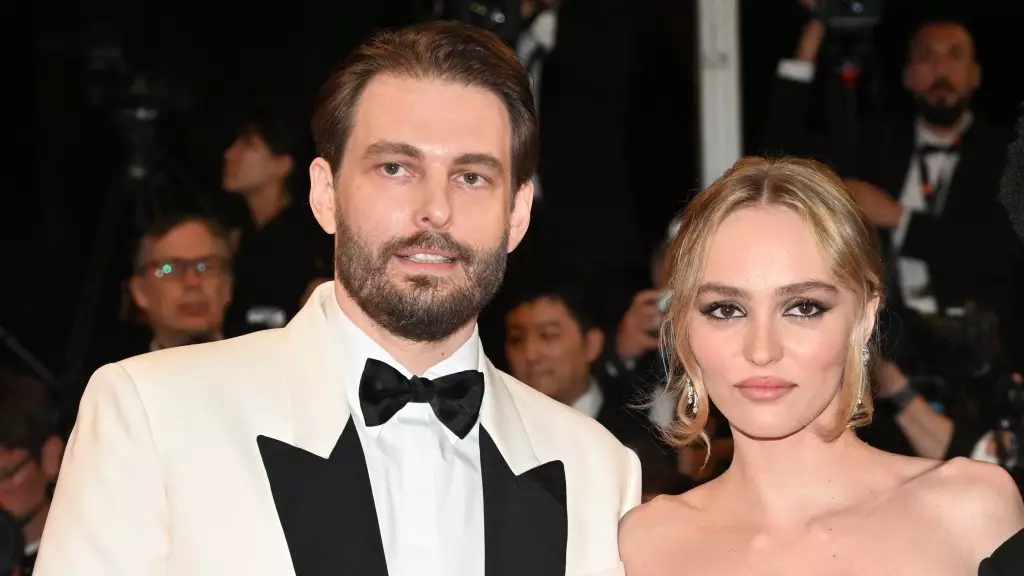The world of television is no stranger to controversy, and HBO’s *The Idol*, created by Sam Levinson, was a particularly polarizing project. The show, which starred Lily-Rose Depp as Jocelyn, a pop star navigating the tumultuous landscape of fame, received a wave of mixed reviews, a fate not uncommon for ambitious artistic endeavors. In interviews and discussions, the critical attention surrounding *The Idol* often focused on its themes and narrative choices, leaving little room for a nuanced discussion about artistry, intention, and the experiences of those who participated in its creation.
Amidst the chaos of critique, Depp stepped forward to defend Levinson publicly. In her appearance on the *Happy Sad Confused* podcast, she emphasized her personal connection to the creator, denouncing negative portrayals of him in light of the show’s ambiguous reception. Depp expressed her frustration over the harsh criticism aimed at Levinson, asserting her belief that the negative sentiment circulating was far removed from her experience with him as a talented filmmaker and a dear friend. “I’m super close with him and Ashley, his wife, and they are such wonderful people,” she noted, underscoring the personal stakes involved in defending someone she views as family.
This aspect of personal connection is crucial in celebrity culture where relationships are often interpreted through the lens of media narratives. By positioning her view against the tide of criticism, Depp not only attempts to shield Levinson but also reminds audiences that beneath the glitzy veneer of the entertainment industry, real human connections and emotions exist.
Diving deeper into her role and experience on the show, Depp also shared reflections on the artistic journey of portraying Jocelyn. Her character’s arc—struggling with mental health and rebounding into the spotlight—seems to parallel the societal discussions prompted by the series. Though the reception of *The Idol* was fraught with negativity by the end, Depp’s fondness for her character signifies a commitment to representing complex narratives, even when they stir discomfort among audiences. “I think we were also, like, pushing society’s buttons intentionally a little bit,” she states, highlighting a bold intent to provoke thought and dialogue through art.
Despite the eventual cancellation of *The Idol* after just one season—a decision attributed to extensive rewrites and reshoots—Depp’s pride in her work remains palpable. She refers to the experience as a significant moment in her career, one that fostered both personal and professional growth. This sentiment is vital, especially in an industry that often rewards popularity over originality. The ability to derive value from challenging processes is what sets apart artists who are merely ‘performing’ from those who are ‘creating.’
Depp’s comments reflect not just a loyalty to Levinson, but also a broader commentary on the importance of advocacy and solidarity within creative spaces. When faced with external criticism, it is essential for artists to cultivate supportive relationships that can weather the storms of public opinion. The mutual respect between Depp and Levinson is indicative of a collaborative environment that encourages vulnerability and exploration, pushing their creative boundaries together.
Such camaraderie can buffer against the harsh realities of artistic life, where creators often walk a tightrope between self-expression and audience reception. Rather than shying away from controversy, Depp’s advocacy hints at the potential of art to provoke and challenge societal norms—a notion that is as essential to entertainment as its consumption.
Ultimately, the narrative surrounding *The Idol* and its cancellation speaks volumes about the current climate of TV production, viewer expectation, and the nature of controversy in the arts. While many may have concluded the series as a misstep, Depp’s reflections invite audiences to reconsider what it means to engage with art fully. It’s about resilience, connection, and the willingness to embrace discomfort for the sake of progression—a reminder that every creative endeavor carries with it opportunities for growth, understanding, and perhaps, even controversy.

Leave a Reply